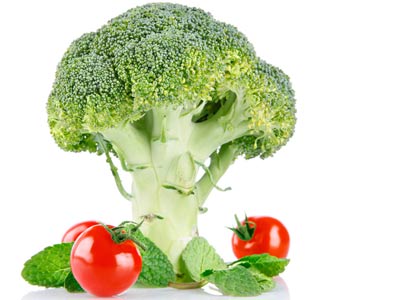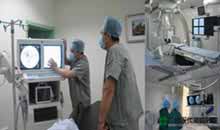Breast cancer is the most terrible cancer killer for women, and a growing number of researches indicate that there are certainly links between breast cancer and diet. Women should pay attention to daily diet and actively carry out the breast cancer prevention work. In the following, experts recommend some foods in the following 4 different colors and help you easily stay away from the breast cancer.

The first choice of green vegetables is broccoli
Broccoli is rich in vitamin C, carotenoids fiber, calcium and folic acid, and studies have confirmed that compounded sulforaphane and indole-3-methanol in broccoli are super anti-cancer substances that can prevent the spread and regeneration of cancer cells and also are effective in preventing breast cancer.
The first choice of red fruit & vegetable is tomatoes
The anti-aging effects and anti-inflammatory properties of lycopene in tomatoes are equally important, and a growing number of experiments have proved that there is a strong relationship between the cancer risks and the intake amount of carotenoids, especially for breast cancer. In addition, eating more fruits and vegetables that rich in carotenoids, such as tomatoes, watermelon, will greatly reduce the risk of cancer.
The first choice of purple vegetables is cabbage
The cabbage is not only rich in 36 kinds of different types of anthocyanins, but also rich in flavonoids which are closely related to anti-cancer effect. In addition, purple cabbage is also rich in indol-3- methanol, isorhodanic ester converted by glucosinolates; all these have a positive preventive effect for breast cancer as well as for prostate cancer.
The first choice of brown nuts goes to walnuts
Experiments show that walnuts can effectively delay the breast tumor’s development and increase of experimental white rats, although human body is different from that of rats, but walnuts are rich in omega - 3 fatty acids, antioxidants, plant sterols, so they can be effective in reducing the prevalence of breast cancer.
If you have any questions, please contact us via online consultation, email or phone call. If you find our website useful, please follow our FaceBook and YouTube, health information will be updated regularly.


























